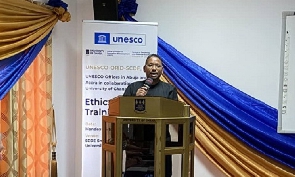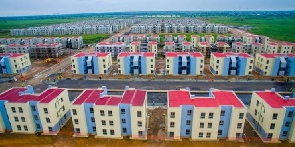Abdourahamane Diallo, a Representative of the United Nations Educational, Scientific and Cultural Organization (UNESCO) to Ghana has reiterated that it is the responsibility of educators to guide students through complex issues and foster an environment that encourages ethical reflection and decision-making.
He noted that educators must design and offer a unique opportunity for participants from Ghana and neighbouring countries to engage with experts in the field of ethics education and to learn from one another's experiences.
“The rapid progress in the life sciences, technology, and the social realm brings with it complex ethical challenges that require thoughtful, well-informed deliberation. As educators, it is our responsibility to guide our students through these complex issues and to foster an environment that encourages ethical reflection and decision-making.
“By advancing our pedagogical capacity in ethics teaching, we are contributing to the development of a more ethically aware and responsible global community,” he said.
Speaking at the School of Continuing and Distance Education at the University of Ghana under the theme ‘Ethics Teachers Training Course’, he stressed that ethics should be embedded within all spheres of life, ensuring that human actions are guided by principles of fairness, responsibility, and respect for human dignity.
The UNESCO Offices in Abuja and Accra, in collaboration with the University of Ghana, organized a one-week training course, which aims to enhance teaching capacities in ethics, given the rapid progress in the life sciences, technology, and the social realm that brings with it complex ethical challenges that require thoughtful, well-informed deliberation.


Share your news stories and ideas with GhanaWeb

To advertise with GhanaWeb

AM/GA
General News of Thursday, 4 May 2023
Source: www.ghanaweb.com
Enhance teaching capacities in ethics – UNESCO representative in Ghana
 Abdourahamane Diallo, a Representative of the United Nations Educational, Scientific and Cultural Or
Abdourahamane Diallo, a Representative of the United Nations Educational, Scientific and Cultural Or
















